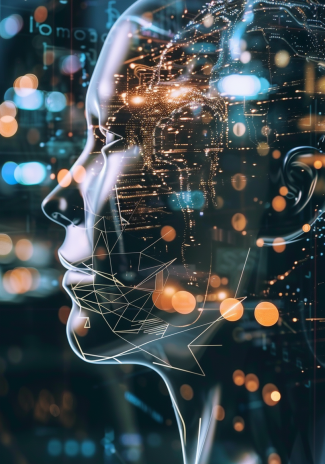A tool for efficiency
In the evolving landscape of real estate appraisals, Artificial Intelligence (AI) has made significant inroads, transforming how properties are valued and transactions are facilitated. However, despite the advances in technology, the role of human appraisers remains not only relevant but essential. This article explores why AI, for all its prowess, still requires the nuanced judgment, expertise, and ethical considerations that only human appraisers can provide.
Interpretation Beyond Data
AI excels at aggregating and processing vast quantities of data faster than any human could. It can analyze market trends, compare thousands of properties, and calculate valuation estimates based on highly complex algorithms. However, AI fundamentally lacks the ability to interpret the subtle nuances that often influence real estate values. Human appraisers bring a depth of understanding to factors like the desirability of certain architectural styles, the impact of neighborhood plans, or the quality of local schools. These elements require a qualitative assessment that goes beyond what current AI can achieve.
Local Knowledge and Expertise
While AI can incorporate broad data sets, it often misses local insights that significantly impact property valuations. Human appraisers understand local market dynamics and are able to contextualize data within the frame of regional developments, community sentiment, and even future urban planning initiatives. Their expertise allows them to adjust valuations based on local market conditions that AI might not yet fully integrate or understand.
“While AI can be programmed to follow certain rules, navigating the complex landscape of ethics in real estate requires human oversight to ensure fairness, legality, and ethical integrity.”
Ethical Considerations and Compliance
Ethical considerations and compliance with regulatory standards are crucial in appraisals. Human appraisers ensure that the appraisal process adheres to ethical guidelines and legal requirements, which can be as nuanced as avoiding biases in valuation practices. While AI can be programmed to follow certain rules, navigating the complex landscape of ethics in real estate requires human oversight to ensure fairness, legality, and ethical integrity.
Managing Unusual Properties and Situations
Properties with unique characteristics or those in areas with few comparables pose a challenge for AI, which relies on pattern recognition and data comparison. Human appraisers are skilled at evaluating such properties, drawing on their experience and professional judgment. In cases of natural disasters, economic shifts, or other exceptional circumstances, human appraisers can assess the impact of such events on property values more accurately than AI.
Building Trust and Rapport with Clients
The appraisal process often involves significant client interaction, where building trust and rapport is crucial. Clients may have specific concerns or needs that require personal attention and reassurance—qualities that AI cannot replicate. The ability to communicate effectively, demonstrate empathy, and provide personalized advice is where human appraisers excel.
Conclusion
AI in real estate appraisal represents a powerful tool, one that enhances the appraiser’s toolkit but does not replace it. Human appraisers are necessary to bridge the gap between data-driven insights and the real-world complexities of real estate markets. Their role is to provide the critical oversight, interpretive skills, and ethical judgment that ensure appraisals are not only accurate and compliant but also fair and reflective of true market values. As we move forward, the future of real estate appraisal will likely be characterized by a collaborative model where AI and human expertise operate in synergy, leveraging the strengths of each to improve the accuracy and reliability of property valuations.



